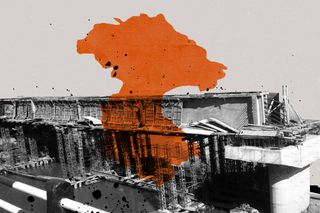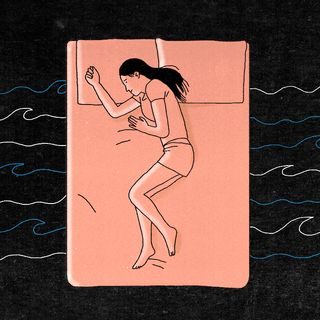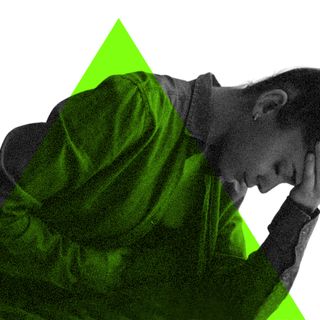
With Community Support Absent Due to the Pandemic, Kashmir Is Facing a Wave of Suicides
Community support for those dealing with grief is especially critical in Kashmir, where most people have no access to mental healthcare.

On 26th June, a 17-year old boy turned up to a local bridge in Srinagar’s Noorbagh and shot a video asking his parents to forgive him for taking “this extreme step.” He then jumped off the bridge into the river Jhelum.
This was the 14th jump that Abdul Raheem, 55, who lives near the bridge witnessed this year. “Out of 14, we couldn’t save a single one,” says Raheem.
The National Crime Records Bureau (NCRB) recorded around 6,000 cases of suicide in Kashmir between 1990 and 2019. Data from the Jammu and Kashmir Police, retrieved through an RTI, reveals that the year 2020 leads the decade with 457 suicides.
Mental health experts in the valley have termed this spike “alarming” and attributed the rise to the Covid19 crisis, which has led to the loss of jobs, financial crises, and precipitation of preexisting psychiatric conditions.
However, this rise in cases of depression can also be traced to the lack of community support during the pandemic. As prominent mental health specialist, Dr. Arshad Hussain points out, grief sharing — which has been a part of Kashmir’s culture for ages — has been missing due to the constraints of the pandemic.
“Most of the patients that I saw [in the pandemic] came from families who lost their loved ones due to Covid, since they couldn’t share the grief after they lost their loved ones,” Dr. Arshad says.
Covid19 has meant that there are no longer any personal condolences, gatherings, or funerals in the valley. For a long time now, people have rushed to community members in times of any crisis, to support and help the family deal with the grief. But now, managing grief has become a lonely battle in the pandemic.
This kind of community support for those dealing with grief and loss is especially critical in Kashmir, where most people do not have access to any kind of mental healthcare. The valley has only one psychiatric hospital, located in Srinagar. Further, with most of Kashmir still having poor internet connectivity, accessing online resources and communities for mental health support is also not a viable option for many.
Related on The Swaddle:
Natural Disasters, Conflicts Have Forced More Than 19 Million Children Out of Their Homes: UNICEF
A suicide survivor who wished not to be named said that he regrets his attempt to die by suicide but also rues the lack of mental health awareness in Kashmir. Although the health department has psychiatrists in every district hospital, mental health awareness, according to experts, is nil.
Dr. Yasir Rather, a noted psychiatrist and professor at the Institute of Mental Health & Neurosciences (IMHANS) in Srinagar, believes that there might be something more to the spike in suicides. He says that people with pre-existing mental health stresses have fallen prey to a “copycat phenomena” of suicides because of irresponsible media reporting — thus more suicides on the particular bridge.
“People can commit suicides by any means, but the recent trend of suicides by jumping into the river [is] a copycat mechanism where people mimic previous suicides when those suicides get a lot of media coverage,” explains Dr. Rather. He emphasized that media houses should exercise caution when publicizing these suicides.
In light of these incidents, the Divisional Commissioner of Kashmir has issued guidelines for the media for reporting cases of suicide, asking the media to avoid sensationalizing the incidents.
The conflict-torn region has had a serious mental health crisis since the armed conflict broke out in 1990. A 2015 study conducted by Médecins Sans Frontières found that nearly 45% of the Kashmiri population “show symptoms of significant mental distress.”
This was made worse in 2020. According to Dr. Rather, due to back-to-back lockdowns, many things changed in Kashmir. “People have financial issues, employment issues, emotional stress, change in family ties, domestic abuse, experiencing helplessness — all these factors have contributed towards harming the mental health and creating a risk factor for suicide.”
“I was under a lot of stress due to financial strains. I wasn’t getting a job and my family was suffering. So, I decided to end all my sufferings once for all and attempt to suicide,” said the suicide survivor, who is in his late thirties.
Tackling these mental health issues not only requires a systemic change in the socio-economic and political conditions in the region, but also more short-term measures to ensure citizens receive healthcare.
“We are starting Addiction Treatment Facilities (ATF) facilities in every district of Kashmir,” said Dr. Mir Mushtaq, spokesperson for the Health Department at Directorate of Health Services Kashmir.
Dr. Mushtaq, however, added that there was a shortage of psychiatrists in the department. “Yes, we have less number of psychiatrists… but we are expecting more in the coming years,” he said.
Dr. Rather argues that the pandemic and lockdown are not the only reasons for suicides, but are the factors that add to the vulnerability of patients with mental health illnesses in the region. There are various other underlying issues like anxiety, major depressive disorders, drug addiction, and unending uncertainty.
Auqib Javeed is a Srinagar-based journalist, who reports on conflict, human rights, politics, health, and the environment from Jammu and Kashmir. He tweets @AuqibJaveed.
Related


What It’s Like To Live With: Uncontrollable Urination at Night
